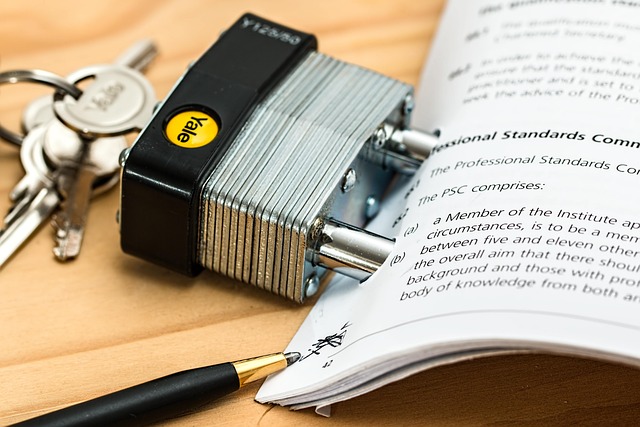College campuses, with their high youth population and social gatherings, face unique challenges in preventing drunk driving, especially involving ride-sharing services. To mitigate College Campus DUI incidents, key strategies include robust driver screening, regular training on recognizing intoxication, advanced technology for passenger safety checks, and open communication between authorities, ride-sharing companies, and students. Ride-sharing drivers play a vital role in preventing alcohol-impaired driving by adhering to strict safety protocols. Stringent measures like enhanced background checks, regular training sessions, and real-time tracking systems are essential for College Campus DUI Prevention. Technology such as GPS tracking and artificial intelligence contribute significantly by verifying trip details and predicting potential dangers. Effective communication and training programs ensure driver accountability through open dialogue, peer feedback, and continuous learning.
In the realm of college campus safety, preventing DUI (drunk driving under influence) among students is a pressing challenge. With the rise of ride-sharing services, understanding the role of drivers in promoting alcohol responsibility becomes paramount. This article explores strategies to enhance driver accountability measures on college campuses, focusing on preventing College Campus DUI. We delve into the impact of technology in ensuring safe rides and the importance of effective communication and training for ride-sharing drivers.
- Understanding College Campus DUI Prevention Challenges
- The Role of Ride-Sharing Drivers in Alcohol Responsibility
- Enhancing Driver Accountability Measures
- Technology's Impact on Ensuring Safe Rides
- Strategies for Effective Communication and Training
Understanding College Campus DUI Prevention Challenges

College campuses across the nation face unique challenges when it comes to preventing drunk driving incidents, particularly involving ride-sharing services. With a high concentration of young adults, social events, and limited transportation options, the risk of College Campus DUI (Drunk Driving Under the Influence) increases significantly. Students often rely on ride-sharing apps for late-night returns home or post-party trips, making drivers an essential part of campus safety.
One of the primary issues is identifying and addressing impaired drivers efficiently. Given the dynamic nature of campus life, with events changing rapidly, it’s crucial to have robust verification processes in place. This includes rigorous driver screening, regular training on recognizing signs of intoxication, and implementing advanced technology for passenger safety checks. Additionally, fostering open communication between campus authorities, ride-sharing companies, and students can help develop effective strategies to prevent College Campus DUI incidents.
The Role of Ride-Sharing Drivers in Alcohol Responsibility

Ride-sharing drivers play a pivotal role in alcohol responsibility, especially on college campuses where DUIs (Drunk Driving Under the Influence) are a significant concern. With many young adults engaging in social activities that involve alcohol, ride-sharing services offer a much-needed safety net. These drivers are not just transportation providers; they are trusted individuals who can identify impaired passengers and make decisions that could prevent potential tragedies.
On college campuses, where the presence of alcohol is commonplace, ride-sharing drivers can actively contribute to DUI prevention by adhering to strict safety protocols. This includes recognizing signs of intoxication, promoting responsible drinking, and refusing service to visibly intoxicated individuals. Their ability to make informed judgments and prioritize passenger safety is crucial in mitigating the risks associated with college-age drinking, ultimately supporting efforts in College Campus DUI Prevention.
Enhancing Driver Accountability Measures

Ride-sharing services have become a ubiquitous part of modern life, offering convenience and safety for passengers. However, ensuring driver accountability is paramount, especially in sensitive areas like college campuses where alcohol consumption and DUI (Driving Under the Influence) rates are often higher. Enhancing driver accountability measures is crucial to maintaining these platforms’ integrity and public trust.
One effective strategy is implementing stricter background checks and regular training sessions for drivers. This includes verifying their driving history, checking for any past DUIs or reckless behavior, and mandating ongoing safety workshops. Additionally, integrating real-time tracking systems during trips can help monitor driver behavior, enabling swift intervention in case of suspicious activities. These proactive steps contribute to College Campus DUI Prevention by fostering a culture of responsibility and safety within the ride-sharing community.
Technology's Impact on Ensuring Safe Rides

Technology plays a pivotal role in enhancing safety for ride-sharing services, particularly on college campuses where DUI (drunk driving under influence) prevention is a primary concern. With advancements in GPS tracking and real-time monitoring, ride-sharing apps can now provide parents, campus authorities, and riders with valuable insights into driver behavior. This technology allows for the verification of trip details, ensuring that drivers adhere to designated routes and times, thus minimizing opportunities for risky behavior.
Moreover, artificial intelligence and machine learning algorithms can analyze patterns to predict potential dangers. By studying driver conduct and passenger requests, these systems can flag unusual behaviors or routes that might indicate impaired driving. This proactive approach contributes significantly to College Campus DUI Prevention by offering an extra layer of protection for students and residents who rely on ride-sharing services during late-night hours or social events.
Strategies for Effective Communication and Training

Effective communication and training are vital strategies for maintaining accountability among ride-sharing drivers, especially in college campus areas where DUI prevention is a key concern. Companies should invest in comprehensive training programs that not only educate drivers on safety protocols but also foster open dialogue about potential risks and responsible behavior. Regular, interactive sessions can address real-world scenarios, ensuring drivers are prepared to handle difficult situations.
Incorporating feedback mechanisms allows for continuous learning. After each ride, drivers can share their experiences, including close calls or challenging encounters, enabling a collective understanding of common issues. This peer-to-peer learning approach complements formal training, fostering a culture of accountability where drivers support and guide one another. Additionally, using technology to provide real-time updates on safety regulations and best practices keeps everyone informed, enhancing overall driver responsibility.
Addressing College Campus DUI prevention requires a multifaceted approach. By understanding the unique challenges faced by college campuses, empowering ride-sharing drivers with alcohol responsibility awareness, implementing robust accountability measures, leveraging technology for safety checks, and fostering effective communication through training, we can create a safer environment for all. These strategies collectively contribute to mitigating drunk driving incidents and ensuring a vibrant, healthy campus community.






